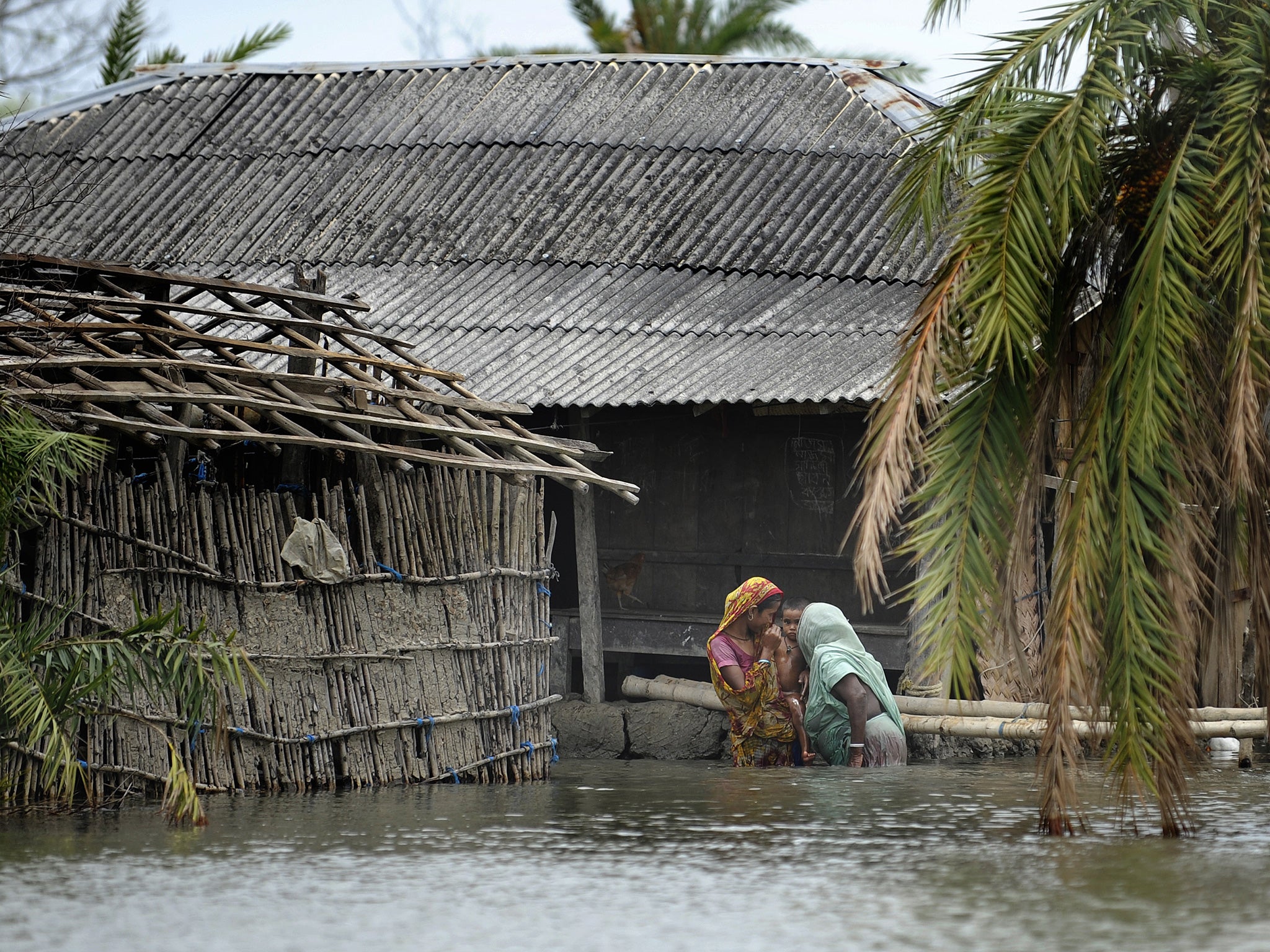Climate change: Women more vulnerable to dangers of global warming than men, say leading academics
Sexual inequality in poor countries means natural disasters will lead to more female victims

Your support helps us to tell the story
From reproductive rights to climate change to Big Tech, The Independent is on the ground when the story is developing. Whether it's investigating the financials of Elon Musk's pro-Trump PAC or producing our latest documentary, 'The A Word', which shines a light on the American women fighting for reproductive rights, we know how important it is to parse out the facts from the messaging.
At such a critical moment in US history, we need reporters on the ground. Your donation allows us to keep sending journalists to speak to both sides of the story.
The Independent is trusted by Americans across the entire political spectrum. And unlike many other quality news outlets, we choose not to lock Americans out of our reporting and analysis with paywalls. We believe quality journalism should be available to everyone, paid for by those who can afford it.
Your support makes all the difference.A new obstacle has emerged in the battle for female equality – in the form of climate change. Global warming will inflict far more suffering on women than men because they are more vulnerable to the floods, droughts and diseases that are expected to increase as the climate changes, leading academics have warned.
Climate change’s gender discrimination will be far more pronounced in those swathes of the poorer, developing world where sexual inequality is typically much greater, where the effects of global warming will be more extreme, and where less money is available to protect against the consequences, they said.
Women in poorer countries tend to be more vulnerable because, when disaster strikes, sexist social structures mean they are far more likely to be in the home cooking, cleaning or looking after others, putting them at greater risk from collapsing buildings.
But that is just one of many reasons why women tend to suffer disproportionately in natural disasters in the developing world. The research suggests that women could be considered more vulnerable in severe storms because they are less likely to have been taught to swim in poorer countries, as well as being more unlikely to own a mobile phone which could be used to call for help.
In the most extreme cases of disasters in patriarchal societies, women may be unable to leave the house without a male companion or their movement can even be hampered by long clothing, experts said.
“Climate change makes all of the very big and complex problems that exist in the world today a whole lot worse,” said Professor Hilary Bambrick, of Western Sydney University, who points out that 90 per cent of the 150,000 people killed in the 1991 Bangladesh cyclone were women.
“If political leaders around the world are serious about gender equality, they must also get serious about climate change,” she added.
Not only do women typically suffer more than men in the kind of climate-related disasters likely to result from global warming – they are also far more vulnerable to the day-to-day impact of rising temperatures. They are more exposed to the mosquito-borne diseases such as malaria, dengue and chikungunya, which they come into contact with through the duties of water collection and food harvesting that typically fall to women and which are transmitted through floods and rising humidity.

Women are also more likely to go without food in the event of food shortages because of drought, while water scarcity means they sometimes have to travel huge distances for to collect water. “This task will become more difficult and require longer walking distances, which may heighten the risk of women and girls being assaulted. Most importantly, it robs them of precious time which they could dedicate to education,” said Elena Manaenkova, assistant general secretary of the World Meteorological Organisation.
The disparity between men and women will be much lower in wealthy countries with relatively stronger gender equality and where the fallout from global warming is likely to be comparatively small.
Nearly 3,000 women across the world are calling on political leaders to put women’s vulnerability to global warming at the centre of their action to tackle climate change – ahead of a key United Nations summit in Paris in December, which aims to reach an agreement on how best to tackle global warming.
They have signed up to the Women’s Global Call for Climate Justice – a global coalition of representative groups – which urges that women be heavily involved at all levels of the discussions in Paris and beyond to ensure gender equality is fully considered.
They are also pushing for numerous specific measures to be introduced around the world that will help women weather climate change – such as making sure typhoon shelters have separate female and male toilets so that women will feel safe to go there during a storm, or providing equipment so that houses can collect rainwater.
Christiana Figueres, the UN’s climate chief who will be in charge of the Paris talks, has pledged to put gender at the centre of the discussions.
“Women are disproportionately affected by climate change. It is increasingly evident that involving women and men in all decision-making on climate action is a significant factor in meeting the climate challenge.”
Join our commenting forum
Join thought-provoking conversations, follow other Independent readers and see their replies
Comments